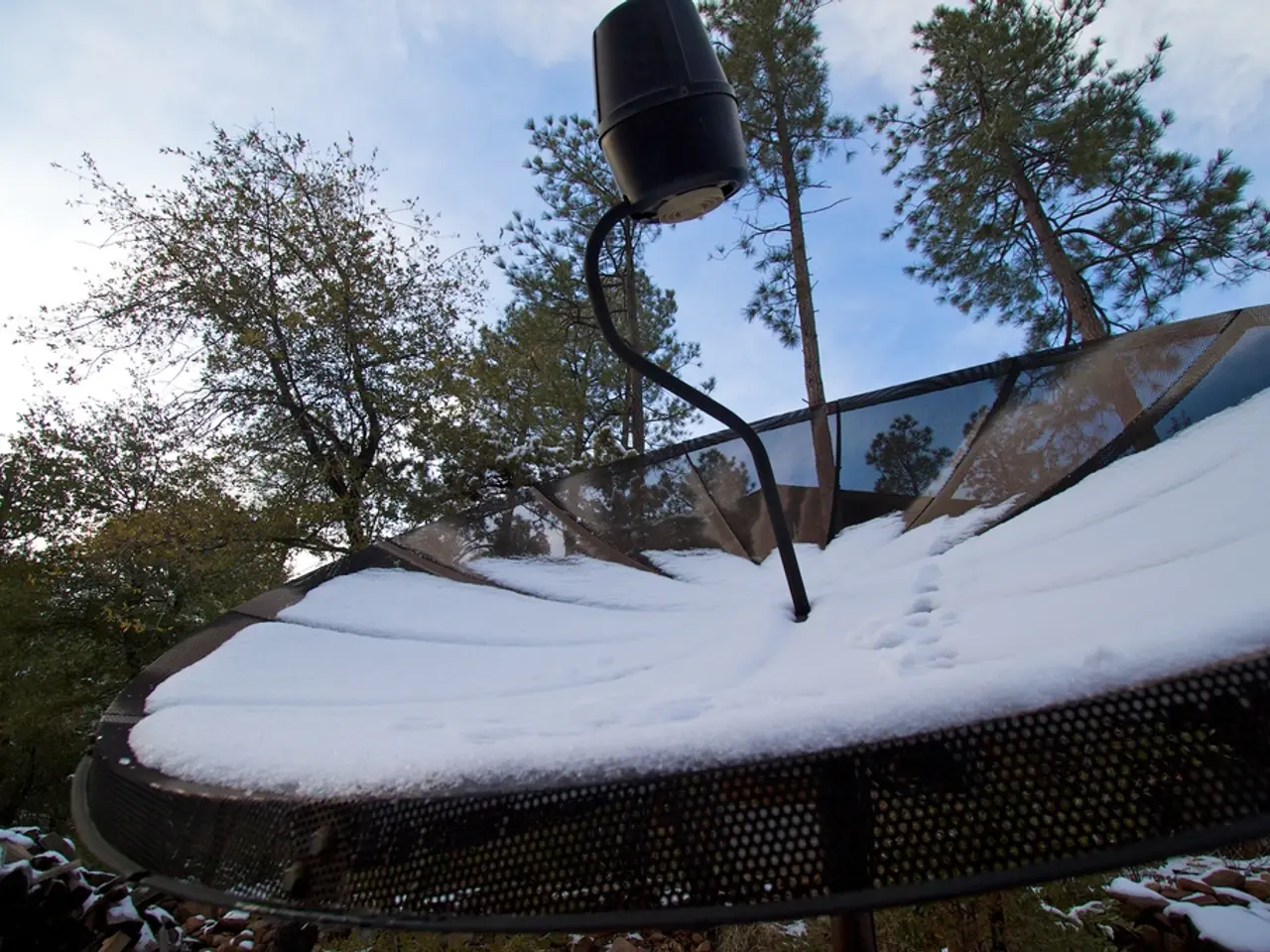Democrats in the Senate Urge Halting Financial Support for Starlink in Specific Regions
In the realm of technology and telecommunications, the Broadband Equity, Access, and Deployment (BEAD) fund has become a hot topic of debate. The federal grant program, aimed at improving high-speed internet access nationwide, has been under scrutiny due to allegations of preferential treatment and potential corruption involving Starlink, Elon Musk's satellite internet constellation.
Recent developments have seen Democratic Senators calling for an ethics investigation into the trade deals surrounding Starlink. These calls follow claims that the Trump administration attempted to funnel BEAD funding to Starlink, which critics argue lacks scalability, reliability, and speed compared to fiber or other terrestrial broadband solutions.
However, it's essential to clarify that no direct, confirmed evidence supports allegations of explicit backdoor deals between the Trump administration and Starlink regarding the BEAD fund. Nevertheless, there are indications of controversy and political maneuvers connected to this topic.
For instance, a 2025 article highlighted proposed changes to the $42.5 billion BEAD broadband grant program by Republicans in the Trump administration. These changes included removing affordability requirements and directing billions in subsidies toward Starlink, potentially diverting funds from other broadband providers. This has raised concerns over whether this redirection prioritizes Starlink at the expense of public interest and could cause delays in broadband deployment.
Furthermore, there are claims about the Department of Government Efficiency (DOGE) during the Trump administration installing Starlink terminals at White House-related facilities without informing communications experts, raising security concerns. This suggests a close relationship between Musk’s Starlink and parts of the Trump administration, though not proof of a secret backdoor deal for federal broadband subsidies.
As the controversy swirls, the National Telecommunications and Information Administration (NTIA) announced a review of the BEAD program, aiming to remove unnecessary rules, improve efficiency, and take a more technology-neutral approach. This move could potentially level the playing field for various broadband providers, including Starlink.
In April, the NTIA further delayed the BEAD program for a detailed review. This delay has been met with calls from numerous other lawmakers to release the funding, citing the importance of the program in closing the broadband divide. Sen. Mark Warner (D-VA) wrote that unlocking the full strength of the economy requires every community to have access to broadband.
Despite the controversy, Starlink remains the only satellite internet provider that qualifies for BEAD funding at the moment. Elon Musk has made deals with other countries seeking tariff relief, including India, Vietnam, and Bangladesh.
However, the Broadband Equity, Access, and Deployment fund hit a major roadblock in January when Trump froze funding for its parent law, the Infrastructure Investment and Jobs Act. This freeze has caused delays in the program's implementation, with concerns that rural and tribal communities may be left behind.
Democratic Senators have highlighted numerous examples of questionable trade deals by Starlink, including awarding the first satellite internet service license in Lesotho shortly after Trump issued high tariffs. They have urged the administration to "move swiftly" and release BEAD funding, claiming that the Trump administration is withholding BEAD funding to funnel money to Starlink.
The Senators expressed concern that the NTIA's revision of the state application process could cause further delays to the program. They emphasised that high-speed internet is essential for jobs, education, and telehealth, and that the BEAD funding is a crucial element to closing the broadband divide, which can have a huge impact on people's quality of life.
As the investigation continues, the future of the BEAD fund and Starlink's role in it remains uncertain. The public scrutiny and calls for transparency underscore the importance of ensuring that any broadband funding is allocated fairly and in the best interest of the public.
- The future of the Broadband Equity, Access, and Deployment (BEAD) fund, particularly in relation to Elon Musk's Starlink, is facing intense public scrutiny.
- Recent calls from Democratic Senators involve an ethics investigation into potential trade deals involving Starlink and the BEAD fund, due to allegations of preferential treatment and potential corruption.
- In the realm of technology and politics, discussions surrounding the BEAD fund and Starlink's eligibility have been dominated by concerns over public interest and fair allocation of funds.
- Amid the controversy, general news reports highlight the potential impact of the BEAD fund's delays on rural and tribal communities, potentially exacerbating the existing broadband divide.
- Looking ahead, the future of the BEAD fund could see a more technology-neutral approach, leveling the playing field for various broadband providers, including Starlink, as a result of the National Telecommunications and Information Administration's (NTIA) review.




